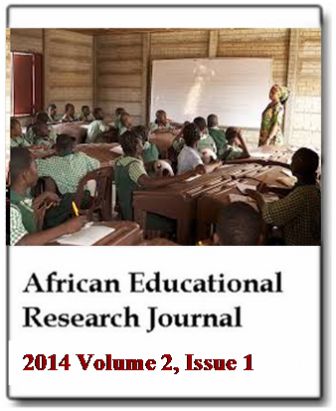Is teaching practice for grading or improvement? Examining student teachers’ perception and experience at the University of Dar es salaam, Tanzania
Gissa A. Mahende and Nkuba MabulaAfrican Educational Research Journal
Published: January 1 2014
Volume 2, Issue 1
Pages 1-11
Abstract
Teaching practice is the central activity in testing teaching skills gathered in classroom learning and in preparing professional teachers in any country. The current study investigated student teachers perception and experience on the teaching practice supervisor’s treatment, student supervisor pre or post classroom discussion and teaching practice processes in general. The data to inform the study were collected from 112 student teachers: 67 were males and 45 females and the tools used were questionnaires both structured and non-structured. Of these 52 were second years while 60 were third years. Majority of respondents about 95 (84.8%) were pre service and 17 (15.2%) were in-service. The findings revealed that student teachers had positive perception on teaching practice exercise, teaching practice supervisor’s treatment, and supervisor-student feedback provision style. It was also discovered that demographic variables such as: sex, year of study and professional background had a slight influence on student teachers perception on teaching practice exercise, supervisors treatment, and supervisor-student feedback styles. In line to that 42 (37.5%) student-teachers acknowledged the concept that teaching practice is for improvement and the remaining percentages were given to factors associated to opposite dimension. It was therefore concluded that, there is a need for strengthening the teaching practice supervision exercise and specifically the collaboration between university teaching practice office and the teaching practice-host institutions should be improved so as to minimize the challenges emanating from miscommunication during the teaching practice exercise.
Keywords: Teaching practice, supervision, perception, feedback, assessment.
Full Text PDF
